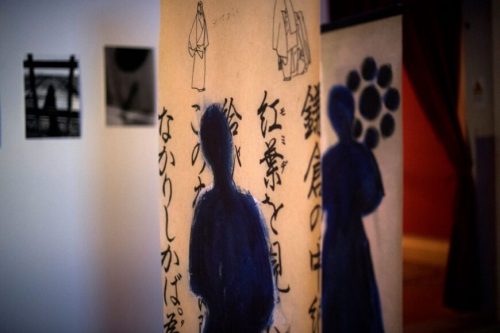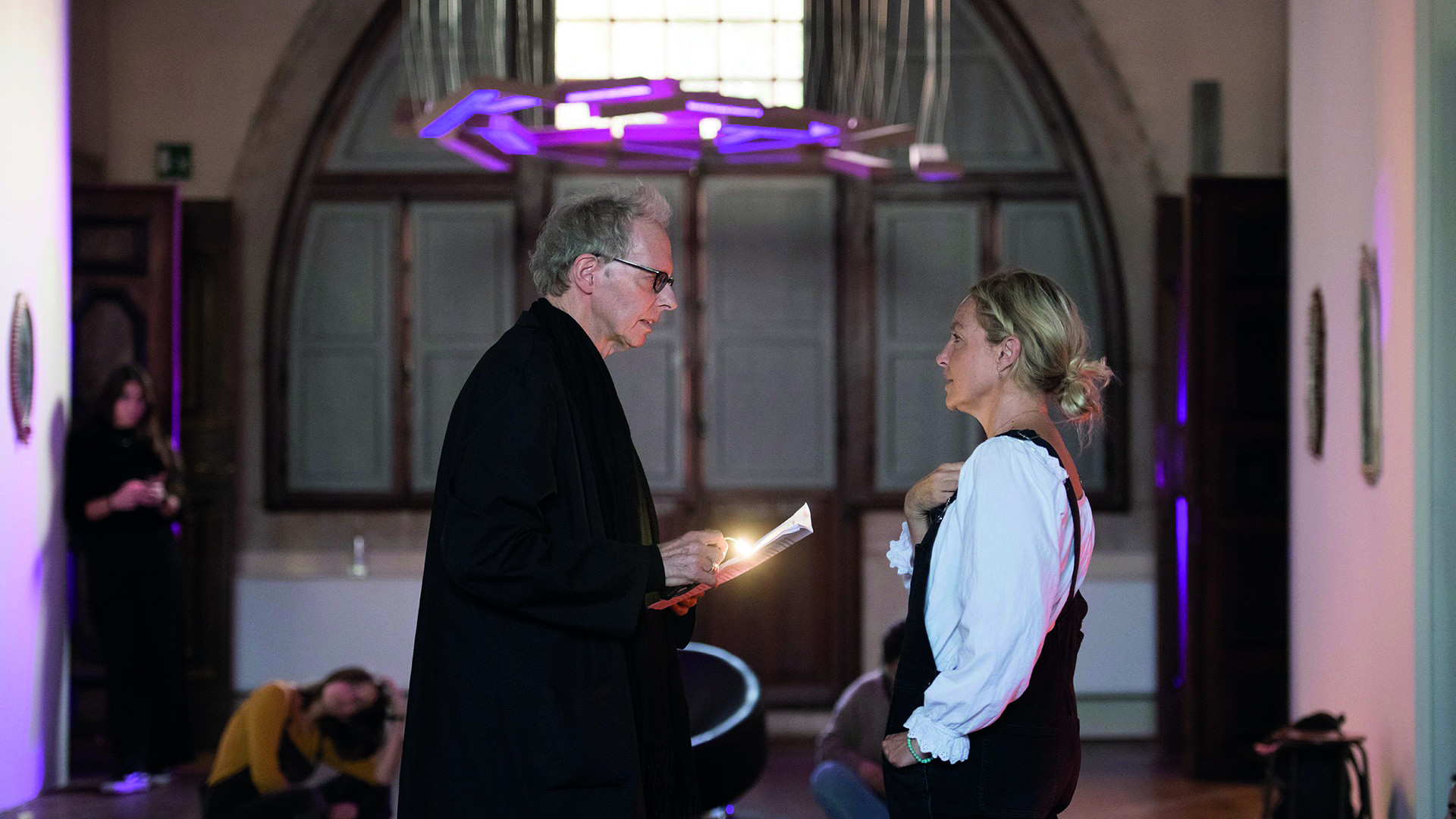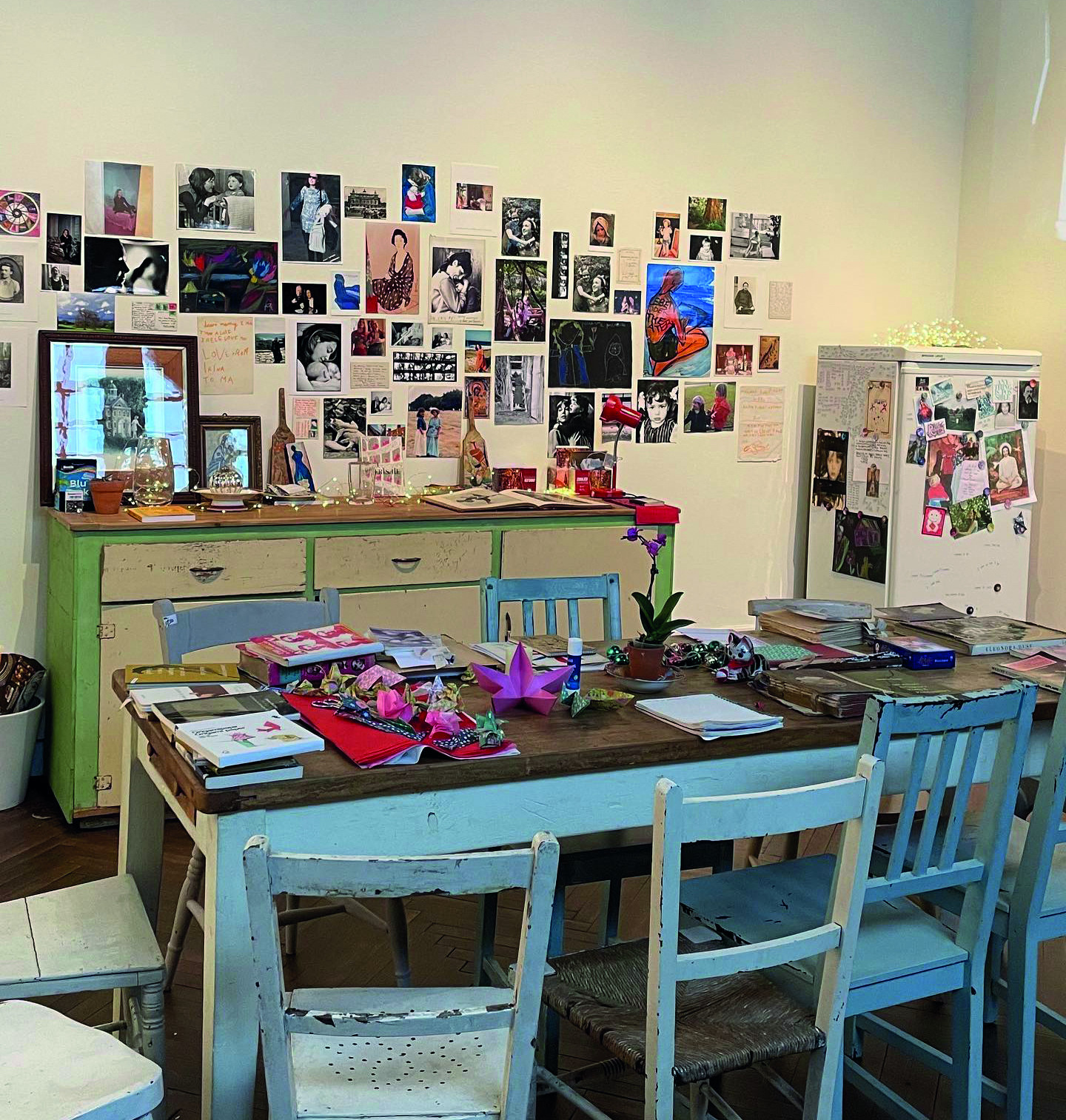

Nine rooms set up with personal objects and furnishings. At the Casa dei Tre Oci, Irina Brook opens the doors of the House of Us to the public, inviting them to enter a dream-metaphor dedicated to the Mother.
At Casa dei Tre Oci, Irina Brook opens the doors of House of Us to welcome the public into her personal world. The nine halls that house the performance have been furnished with objects coming from her actual home. The director, aided by students from the Carlo Goldoni Theatre Academy, will turn the place alive, moving about like shadows in a dream. We will be invited to enter the house/metaphor dedicated to the figure of Brook’s mother, English actress Natasha Parry, who died in 2015 after living through much of her life in the shadow of her husband, the great playwright Peter Brook. The performance in Venice will be produced by Teatro Stabile del Veneto and is the third such version of the project, after a first exhibition at a gallery in Hastings, England, where she lives, and a September 2021 representation at Palazzo Sant’Elia in Palermo, Sicily, in collaboration with Teatro Biondo. A selection of Irina’s works will also be desplayed as a collateral exhibition at the Events Pavilion of TFondaco (Fondaco dei Tedeschi).
We met her at the kitchen’s table a few days before the Venice premiere.
We need new forms, and if we can’t have them, then we’re better off with no theatre at all
(Konstantin in Anton Chekhov’s The Seagull)

Hastings, Palermo, and Venice. What differences, and what points in common?
I am very grateful to the Biondo Theatre, and to director Pamela Villarese in particular, for their support, their friendship, and their trust. I recognize Pamela’s courage in accepting a project that wasn’t that clear to myself in the first place, an experimental project that had little in common with traditional theatre. The staging of the show at Palazzo Sant’Elia in Palermo was simpler and more minimalist than that in Venice – if anything, because there was smaller funding. Another difference is the relationship with the public, who will be free to roam around as they please in Venice, but were guided along an itinerary in Palermo. It was pretty emotional: it was the first time I spoke openly about my mother, and it was an intense experience that I prepared for by turning myself invisible, almost absent. Being a mother myself, I then understood that authenticity requires no more hiding. Beside the story of my mother, I had to tell the story of myself as a mother, and doing that, I could tell the story of all mothers. The original core of House of Us dates back to an earlier experience, though, an exhibition produced at Electro Studios in Hastings, where I live. In that case, I also used personal belongings to recreate my home. It was immense work for a mere three days of exhibition. Quite an energy-intensive experiment. Still, I felt something was missing. Theatre was missing, a narration that is shared with your audience. That’s why I thought about making a performance out of it.
At times, especially at night, I feel I have it all under control. I feel confident that I will be able to direct very effectively spaces, sounds, lights, movements. But in this imaginary reconstruction, one thing is missing: the audience.

Nine halls over two storeys. How will the audience walk around it during the performance?
All furniture and objects come from my actual house: the kitchen table, cups, photographs, games, books, newspapers… It was like relocating in a very short time. We had to design the space and the staging, lights and sounds, and lastly, I had to think about how we’d move about the exhibition area. At times, especially at night, I feel I have it all under control. I feel confident that I will be able to direct very effectively spaces, sounds, lights, movements. But in this imaginary reconstruction, one thing is missing: the audience. To begin with, I don’t know whether I will have an audience of two, twenty, or thirty. I may instruct my actors to welcome guests and offer them a glass of wine, something like that, but how can I imagine what happens next? This doesn’t mean the show will be improvised – far from it. But it will be a bit like real life: you can plan a party down to the finest detail, but you don’t know what your guests will do. You just know you gave it your all, but you can’t predict the outcome.
House of Us might be a braver, more unpredictable experiment than anything I’ve ever done.
Will you be giving any instructions at all?
House of Us might be a braver, more unpredictable experiment than anything I’ve ever done. In this case, I believe some instruction would be advisable. I thought about welcoming the public at the beginning and brief them on the several spaces, so that they can manage their time better and not linger in one room and miss the other. Throughout the performance, we won’t speak with the public much, because the goal of this experience is to feel something magical, something dreamlike.
Objects seem to write your biography. If you had to pick two, which ones would they be?
The kitchen table, first. When I was sixteen, I was fascinated by a picture of Chekhov sitting at the table in a dacha, together with the actors who would later perform in the Seagull’s premiere. Ever since, I thought of the table as the symbol of sharing and creativity. The second object is my clothes dryer. When I’m home, I’m the one who folds my children’s clothes. Folding clothes is a bit like life, it is work that has no apparent end. The minute you thought you’re done with it and folded all the clothes, that’s where you have to start again.

How did you like working with the students from the theatre academy?
I have been an actress myself back in the days, but the job was not making me happy. Precisely because I know how hard, even painful, acting can be, I strive to make it an enjoyable experience for them. We had very good times together because we didn’t follow convention: we meditated in the kitchen, read theatre, spiritual and philosophical texts, had tea quite often… little by little, this kitchen became also their kitchen, their home.
I believe it is, indeed, essential to question classical theatre.
The crisis of theatre and the research for new languages…
As he was talking about theatre, Konstantin, one of the main characters in Chekhov’s The Seagull and an essential figure for my project, says: “We need new forms, and if we can’t have them, then we’re better off with no theatre at all”. I believe it is, indeed, essential to question classical theatre. Those who do theatre today doesn’t question it enough, convinced as they are that everything will stay as is forever. Soon, though, we will have to address new generations, who are used to consume content on their phones, to speed, to shorter attention spans. Will they spend two hours sitting through Molière? I’m not so sure they will. Theatre will still be there in fifty years if it can adapt and transform into an immersive experience or, on the other end, turn into intimate, small productions, in bare little rooms, the way it took place in the early twentieth century during the war.